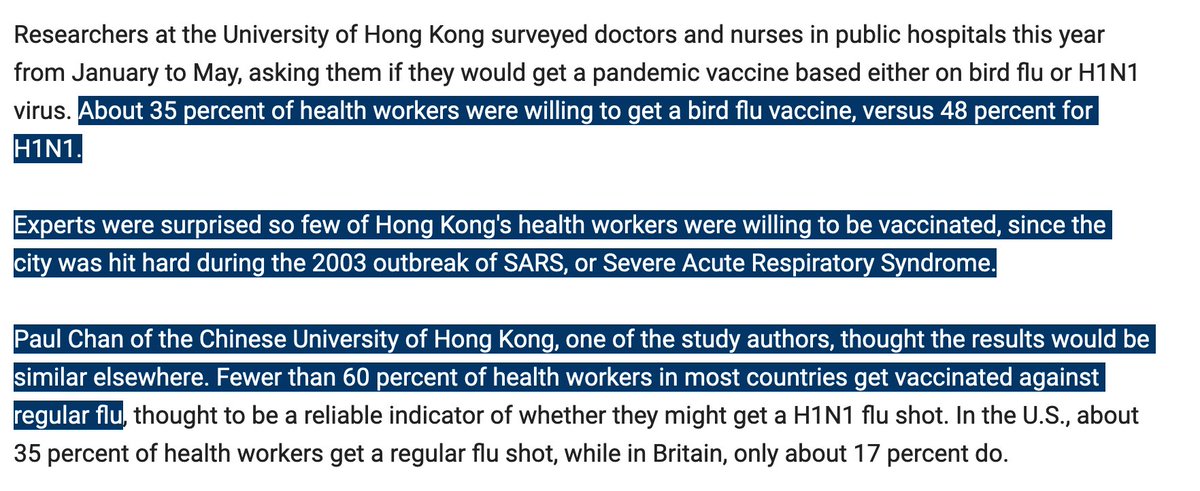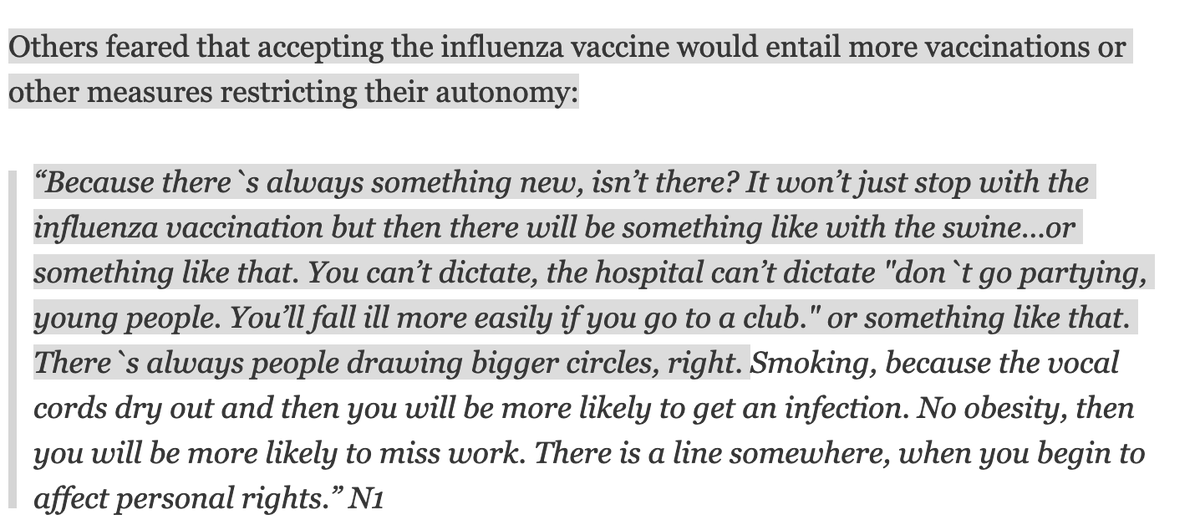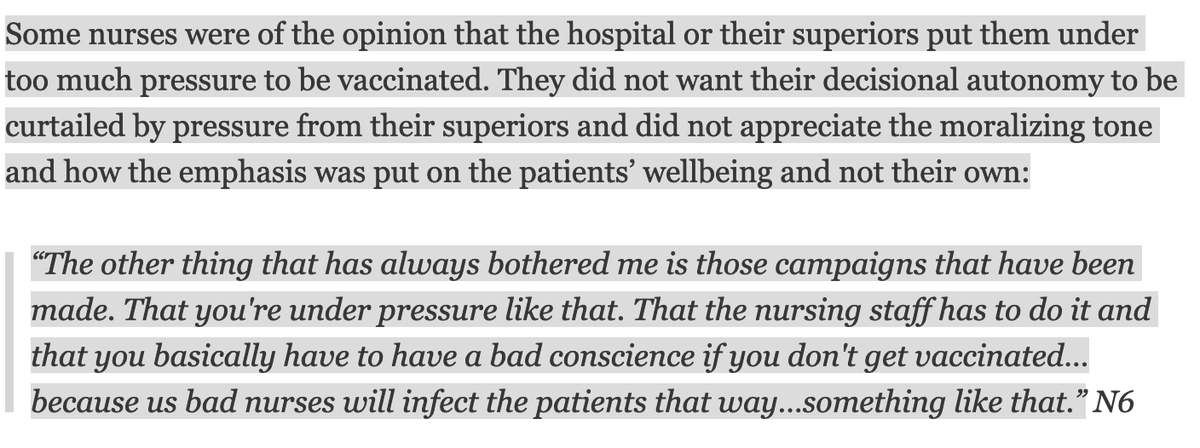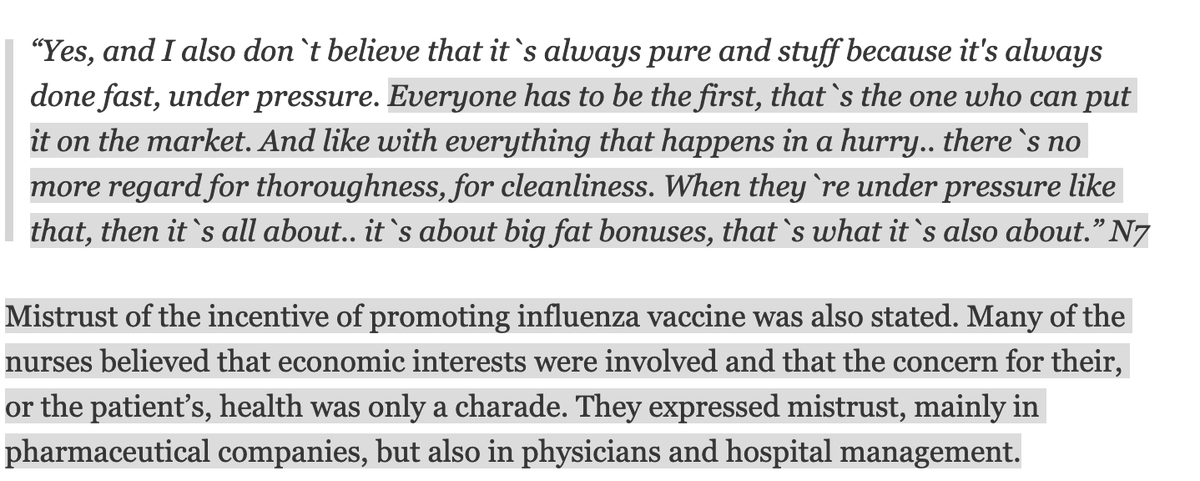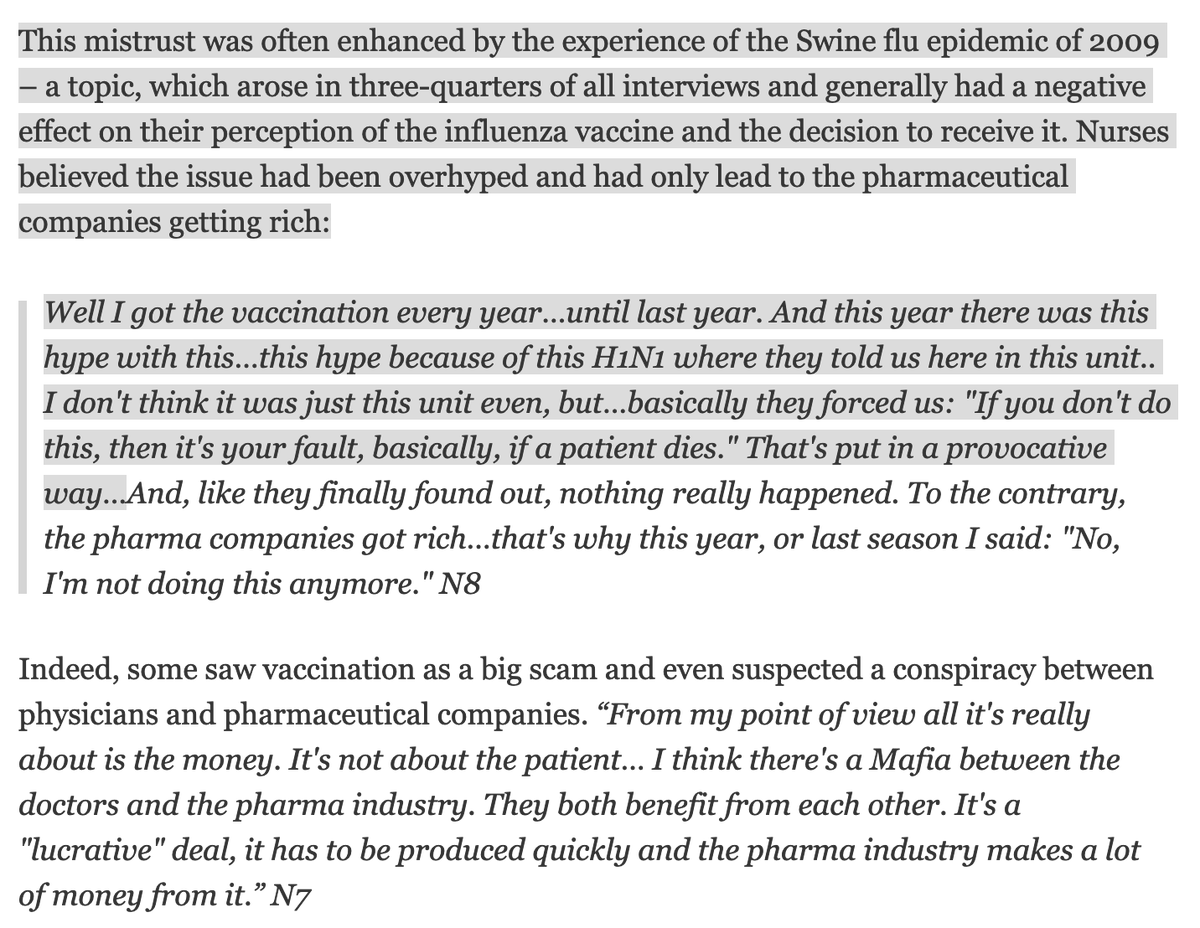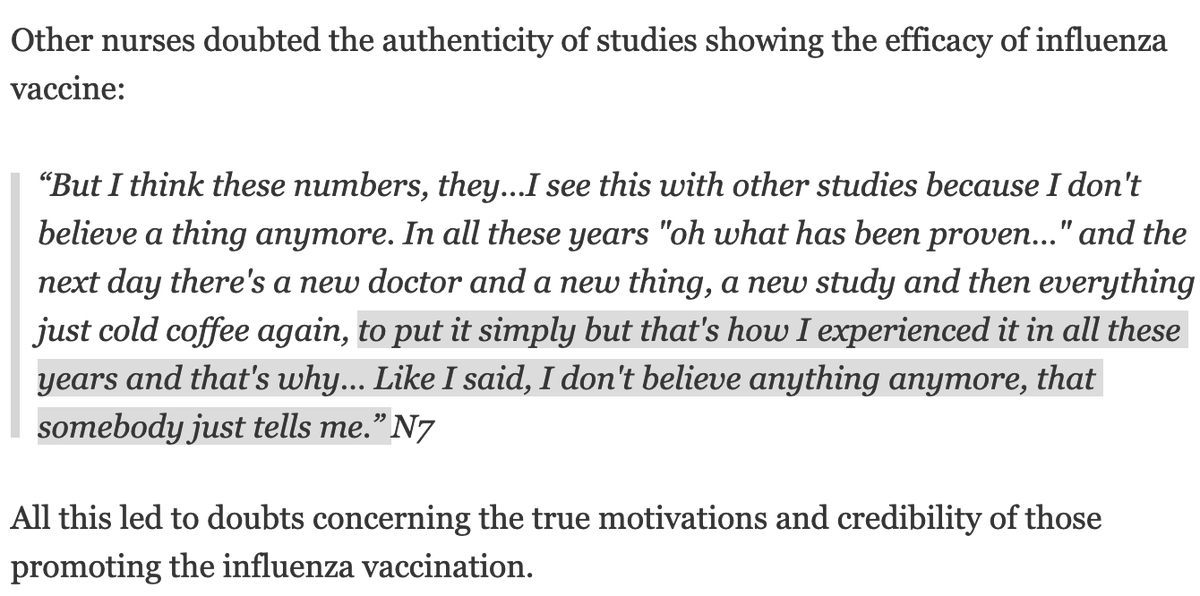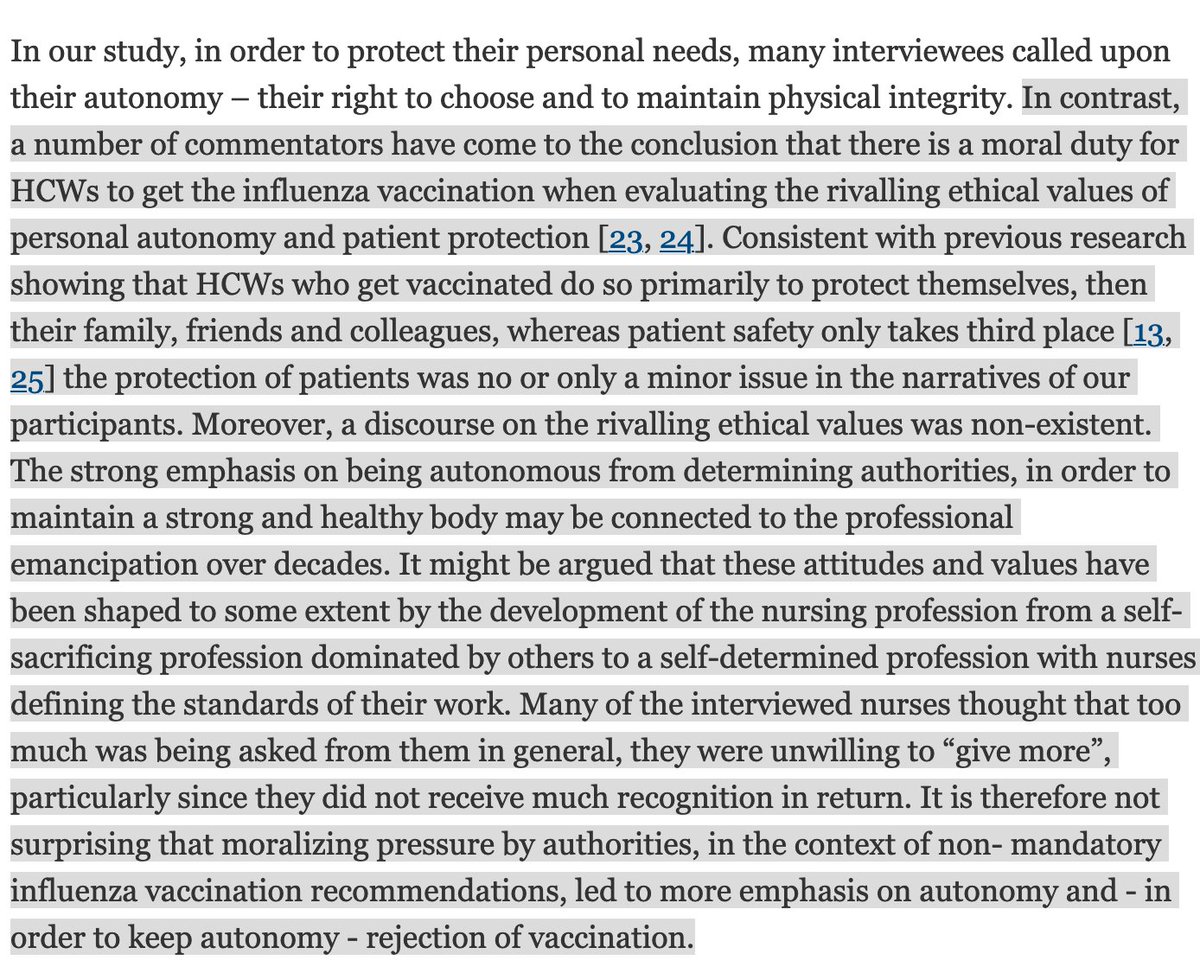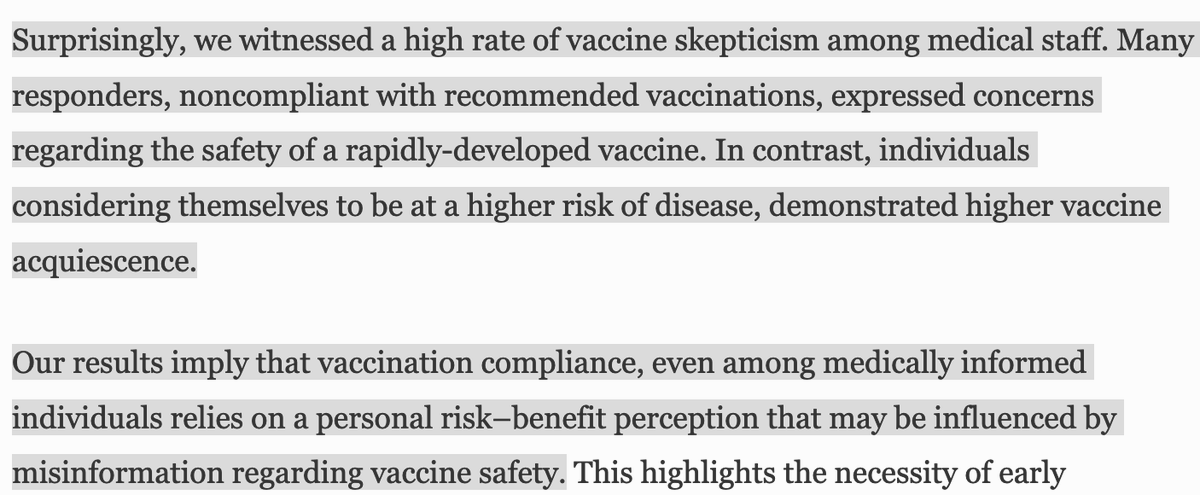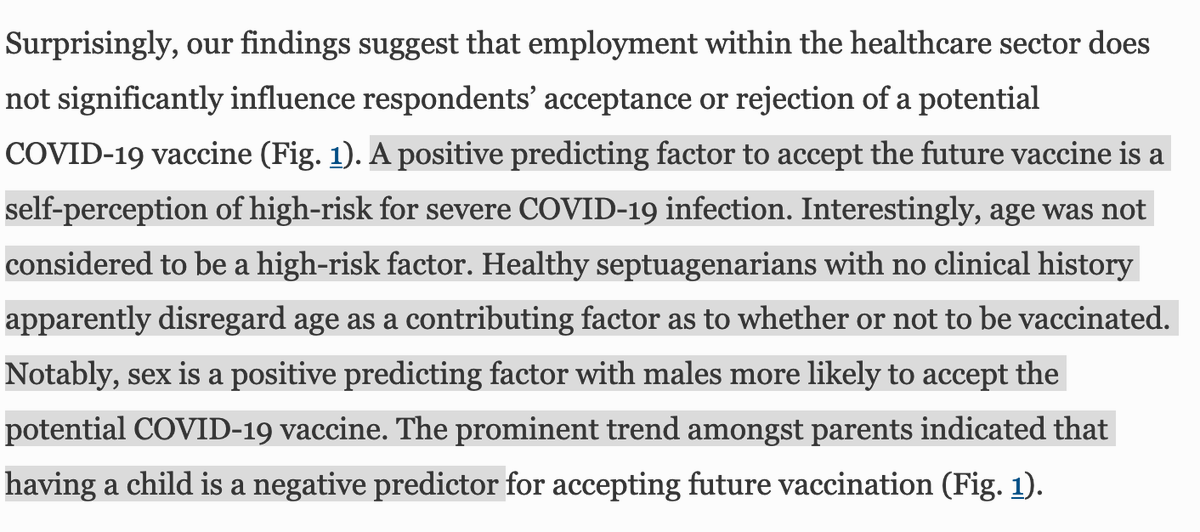The healthcare worker resistance was entirely predictable. The fact that it has been glossed over has itself been a major red flag. Lots of grand plans detached from reality, if they were ever aiming at reality. From 2009:
New vaccines for new viruses are just raise fundamentally different concerns compared to common childhood vaccines, about which we have so much information that a comprehensive risk analysis can be done.
A lot of these studies indicate that nurses and doctors are creeped out by the aggressive behavior of pharmaceutical companies, especially with the HPV vaccine. The incentives to make excessive claims are obviously there. Trust is really the central issue.
People cheering on the heroics of the pharmaceutical companies and wondering what they will tackle next do not realize that some people recoil from this. The relentlessness is precisely what makes them uneasy. This is mostly personality/worldview difference, not a knowledge one.
They tried to blame it all on the internet even then, but several studies feature workers describing interactions with pharmaceutical company reps. There's definitely a backlash to flashy private sector involvement in vaccine development, even if it is efficient.
The concerns are long-standing and have very little to do with the things we are told to blame. This is just how most people think in such situations. It's very predictable.
One thing covid has revealed is the general shadiness of flu statistics. And that's probably the best than can be done, no grounds for criticism or distrust in itself. The whole point is that this stuff involves a lot of uncertainty. But they need to admit that.
Controversial as this may be, I don't believe most people feel a broad ethical responsibility for other people's health. It just requires more alertness and caution than is practical. I certainly believe most people feel they have a moral duty to avoid infecting others.
Especially when those people are high risk. But this translates to staying away from them when sick, as circumstances allow. It's not clear most people see anything more extensive is justified, certainly nothing policed by authorities, at least pre-2020.
And this is hardly a callousness unique to nurses. Most employees are hesitant to take sick days even when obviously sick. The corporate culture encourages people to infect their co-workers and clients rather than be seen as insufficiently dedicated.
This sounds like exactly what they should be and are doing--evaluating personal risk. Those who perceive themselves as high risk are less concerned with the rapid development. No reason to think misinformation is the main culprit.
I believe this is a reference to Israeli healthcare workers specifically. Interesting points. I have repeatedly noted how men have been more willing to embrace vaccination, and also that I've never seen so much panic among (a minority of) men as I have with this.
I know a lot of men who aren't worried at all, and I tend to think there's a certain healthy obliviousness to health issues more common to men. I suspect this actually makes them more receptive of vaccines, because they don't worry about what might happen.
On the other hand, I suspect the stats on parents may relate to concerns about fertility or birth defects, if they plan to have more kids. I think this is also the case for younger women. Also, being pro-active about one's health is an overlooked individual variable.

 Read on Twitter
Read on Twitter